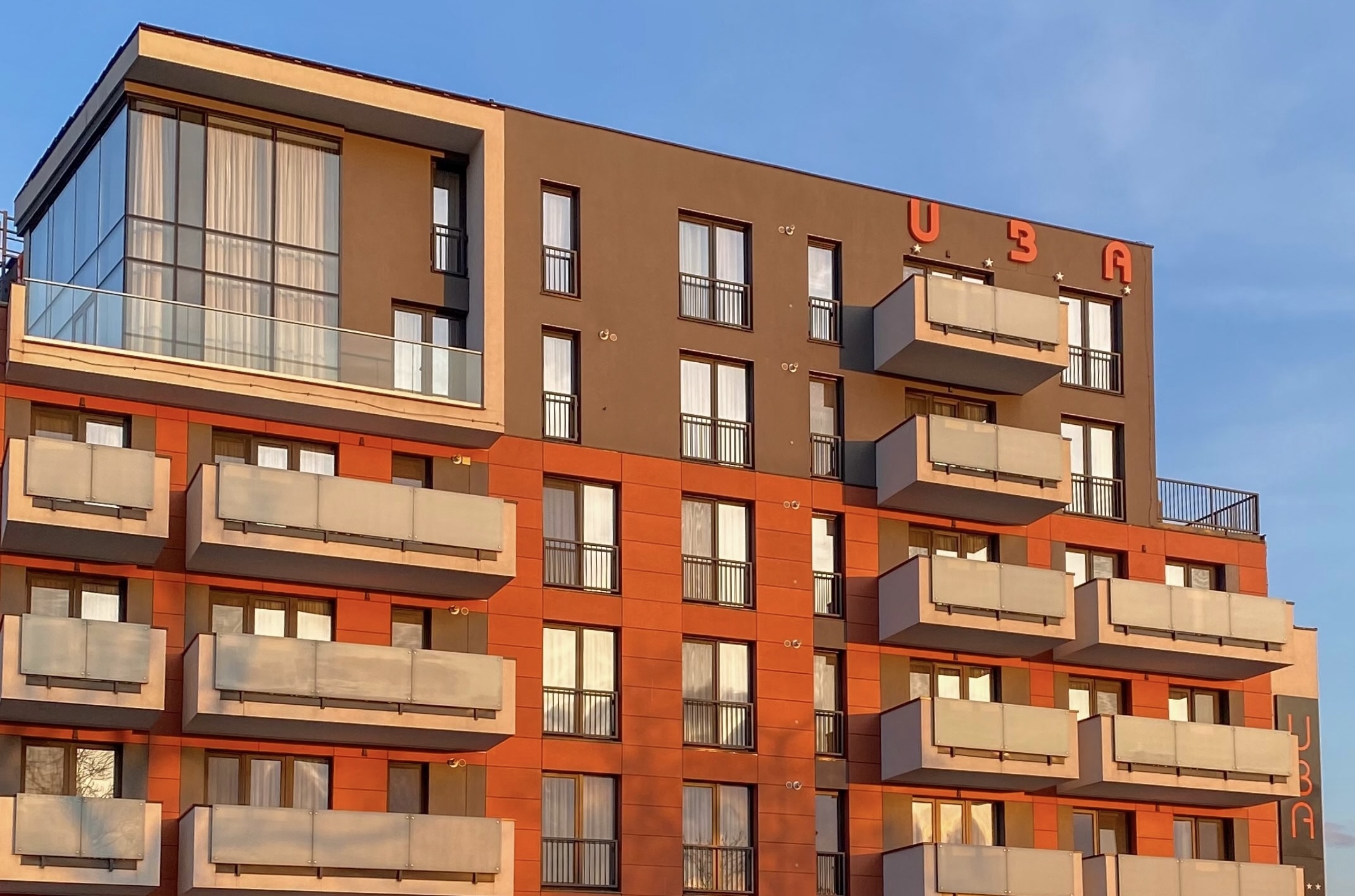When you purchase a condominium, you want to protect that investment in case of adversity — whether a fire, plumbing catastrophe, liability or theft, to name a few. The condo association should maintain insurance on the building, but it will not deliver all the coverage a condo owner needs.
An HO-6 condo policy will insure your unit and can provide liability coverage. Condo association insurance typically does not cover all damage to the structure or contents in a member’s condo unit, leaving an insurance gap and making you vulnerable to financial loss. You can close that gap by buying a condo policy.
A condo policy is a contract between you and an insurance carrier. You agree to pay premiums in a timely fashion, and the carrier agrees to provide you with specified coverages. Your insurance coverage is determined by the insurance policy you select. Clauses in it may address:
- Structural damage to the interior of your condo unit — for example, from a fire or plumbing problem — that requires ceiling, wall or floor repair.
- Appliances.
- Loss of personal property and valuables, such as computers, jewelry, antiques, art or other items.
- Temporary housing costs incurred after a fire or storm made your condo uninhabitable.
- Liability for accidental injuries or damages to others, such as a pet biting a neighbor; water damage in an adjacent unit because your child overfilled the bathtub; or other damages associated with a lawsuit.
To evaluate your condo insurance needs and purchase the policy that is right for you, be sure you know what master policy coverage your condo association purchased. A “bare walls” policy will provide you, the condo owner, with little to no coverage in your unit while an “all-in” condo master policy may cover some items, such as appliances, electrical wiring or plumbing.
Your Trusted Choice® Independent Insurance Agent with Waypoint Insurance can review your condo master policy and help you determine your insurance needs. Your Waypoint Insurance agent is independent and can provide rate comparisons for policies offered by numerous companies and help you make your policy selection.
If the Condo Association Has Insurance, Why Would a Unit Owner Buy a Condo Policy?
Condo association insurance may not meet all your coverage needs as an owner.
Condo associations oversee management of the common property owned by the condo association’s membership (the condo unit owners), including grounds surrounding the structure(s), any amenities, and structural aspects of the building(s) that must be maintained. The insurance they purchase to protect the association’s interest in this property may or may not include aspects of the interior of a member’s condo unit.
The extent of coverage carried by an association will affect what policy you, as a condo owner, need to buy. Condo insurance may cover damages resulting from theft, fire, or a severe storm, including temporary housing costs if your condo is significantly damaged. Condo insurance provisions also may cover your loss of personal possessions and personal liability and medical coverage in the event someone is injured in your unit. Policy deductibles and payment limits govern when payments kick in and define maximum payments that the insurance may make in such instances.
Additionally, the purchase of HO-6 policies (which are specifically for condos, townhouses and co-ops) often are stipulated by lenders.
How Do I Know How Much Coverage I Need in My Condo Policy?
This is not a one-size-fits-all question. The answer hinges on what it would cost you to replace your belongings or restore your unit in the event of a burglary, a fire, or some other calamity.
You should create an inventory of what you have and identify the value of your furniture, electronics, clothing, and other personal items. (Use photos or video to make the task easier.) Then compare the level of coverage in the policy you are considering with how much it would cost you to replace the items.
In some instances, you many need to purchase additional coverage for jewelry or other high-value items if they exceed the coverage limits (maximum that can be reimbursed) in the policy.
To find appropriate coverage at a competitive price, ask your Waypoint Insurance agent to assist you.
When Should I Supplement My Condo Insurance Policy with Other Coverage?
You may want to supplement your condo policy under certain circumstances.
For instance, if your valuables would appraise for more than the limits (maximum that can be reimbursed) stated in your condo policy, you should consider beefing up your coverage with a personal property rider. It is a good practice to keep an inventory of your high-value items and get them appraised. Work with your Waypoint Insurance agent to purchase the policy rider or endorsement that you need to make you financially whole in the event your items are lost, stolen or damaged.
You also may want an umbrella liability policy (a supplement to your condo policy) to protect you against personal claims. For example, if someone is injured in your condo; if a grease fire in the kitchen goes out of control, damaging your neighbor’s unit; or if your child throws a ball and breaks a neighbor’s window, a liability policy can come to your aid. Costly claims can arise from unanticipated situations, and adequate liability coverage can save an individual or family from financial ruin.
Your local Waypoint Insurance agent is a trained professional on whom you can rely for a complete evaluation of your insurance picture.
How Much Does Condo Insurance Cost?
The cost of condo insurance varies. Geography, weather, the size of the unit insured, and the amount of coverage (including the size of the deductible, which is the amount you agree to pay up front) are among the variables that can affect the insurance rate. Produced in 2019, the National Association of Insurance Commissioners Dwelling Fire, Homeowners Owner-Occupied and Homeowners Tenant and Condominium/Cooperative Unit Owner’s Insurance Report: Data for 2017 lists the average annual rate of condo insurance in the United States as $488 per year. Wisconsin had the lowest average annual rate ($249), and Florida had the highest ($942).
Can Condo Policy Owners Deduct the Insurance Cost from Their Taxes?
Condo insurance is normally not tax deductible. However, if the property is used as a rental to generate income, the owner may be able to treat the insurance as a business expense.
Similarly, if the condo owner operates a home-based business, they may be able to deduct a percentage of the insurance cost, depending on what square footage of their living space is solely dedicated to their work. The owner should adhere to government requirements in making such calculations and may find a tax adviser’s guidance helpful.
How Do I Purchase Condo Insurance?
We recommend purchasing condo insurance through an independent insurance agent in your community. Your local Trusted Choice Independent Insurance Agent is a trained professional who understands your neighborhood (for example, are you in a food zone?) and can provide you with a comparison of rates based on your insurance needs.
Your Trusted Choice agent also can advise you on various coverage options and tell you about insurance discounts for which you may be eligible. For instance, insurers often give lower rates to customers who purchase multiple policies from them, such as a combination of condo, umbrella, and car insurance policies.
To feel confident that you are adequately protected and are not overpaying, let your Waypoint Insurance agent help you. It couldn’t be easier. Just click “Contact” at the top of our webpage.
Is Theft Covered by Condo Insurance?
If the condo policy you purchase includes personal property, it will most likely cover theft or burglary. Sometimes it also will include coverage for items stolen from your car.
To be sure you have the insurance you need, ask your Waypoint Insurance agent to help you review the terms in your policy so you know what it will cover. You also should inventory your personal property and calculate its value. If your belongings would cost more to replace than what your policy would pay in the event of a loss, you may want to buy more coverage.
Also, in today’s world, many face the threat of cyber theft, and purchase products to guard against malware, hackers, bank fraud and identity theft online. However, just 20 percent of those participating in a Verisk study purchase personal cyber insurance. If you shop or bank online or use the internet for other activities that could put you financially at risk, you may want to consider cyber coverage.
As always, your agent is best able to help you evaluate your needs and identify the coverage that is right for you.
Is Storm Damage Covered by a Condo Policy?
Condo insurance generally provides coverage for personal property losses resulting from a hurricane, tornado, or windstorm.
Other related structural damages to fixtures, electrical wiring or plumbing caused by a storm may be covered by the condo owner’s policy or that of the association, depending on whether the condo association’s master policy is a “bare walls” policy.
If it is a bare walls policy, a condo owner may want to ensure that the policy they select includes some coverage in the event of damages caused by a storm. Work with your Trusted Choice agent to verify that the coverage you select will include the coverage you might need in the event of a hurricane, tornado or windstorm.
Earthquakes generally are not covered by condo policies. In California, where the risk of an earthquake is particularly great, the state’s Earthquake Authority, established in 1996, has worked with carriers to offer more affordable earthquake insurance. The California Earthquake Authority (CEA) has become one of the world’s largest residential earthquake insurance providers. These policies are purchased in addition to a condo policy. Your Waypoint Insurance agent can assist you.
Are Special Assessments Covered by Condo Insurance?
A loss (or special) assessment occurs when individual owners are required to help the association make good, or when individual owners are required to help the association meet a high master policy deductible.
Here’s an example: A hailstorm severely damages the building roof and landscaping, and the repair bill is $750,000. But the master policy limit is only $500,000. The unit owners will each be assessed their share of the $250,000 remaining due after the policy claim is paid.
Another example: A child is killed on the association’s common playground equipment, and the child’s parents successfully sue the association for $3.5 million. The master policy liability limit is $2 million. Unit owners will be assessed their share of the $1.5 million remaining due to the parents after the insurance company has paid the policy limit.
Loss assessment oftentimes are not adequately covered by an HO-6 condo policy. Your Trusted Choice agent can help you review your policy and whether it provides adequate coverage should you receive a special assessment. You may want to add more coverage. Depending on the circumstances, a loss assessment could run into the tens of thousands per condo owner.
Is Mold Covered by Condo Policies?
Condo insurance plans usually exclude mold remediation. The National Association of Insurance Commissioners reports that insurance carriers frequently define mold as an “excluded peril” so costs associated with its remediation may not be factored into condo insurance policy costs.
Still, depending on the cause of the mold, you may be able to secure assistance from your insurer under certain circumstances. For instance, if you return home from a vacation and find mold growing in the aftermath of a water leak that occurred while you were gone, the insurance may pay for the repair. However, that also hinges on whether the origin of the problem is a covered peril in your condo owner policy.
If you are concerned about how your policy will cover you, talk with your Trusted Choice agent.
Are Appliances Covered by Condo Policies?
If your condo association’s master policy is “all-in,” it may include coverage for appliances, and it may be included in the policy you bought for your unit. To understand how appliances are covered in your insurance, be sure to review that aspect of your insurance with your Trusted Choice agent so that you know what the coverage requirements and limits are.
When you purchase a new appliance, you should let your agent know so your condo policy remains current.
How Does a Condo Owner File a Claim?
If you are a condo owner and you need to make an insurance claim, first consider whether the loss falls under your condo association’s policy or your own. If the loss rightfully falls under the coverage provided by the condo association’s master policy, then you need to follow the steps outlined in your condo association’s governing documents. You also may want to reach out to your condo association’s management team for guidance as it relates to making a claim.
Under certain circumstances, such as a fire or theft, you may need to contact your agent and the condo association’s insurance company. For instance, if a fire originating in your unit breached another part of the condo structure governed by the condo association, your condo policy and the master policy may both be involved. In the case of a theft, the robber may have done structural damage in a common area while gaining admittance to your unit.
If I Decide to Rent My Condo Out, Will My Condo Policy Still Cover Me?
If you plan to turn your condo into a rental property and will not be living there, you must discuss the change with your agent. Condo policies are written with the understanding that the owner is the resident, so a change in policy will be required. Also, as you become a landlord, you may have other potential risks and liabilities to consider with a tenant.
Your Trusted Choice agent at Waypoint Insurance can help you evaluate what policy will be right for you.
*Coverage cannot be bound, changed, or altered unless confirmed by a licensed agent*




